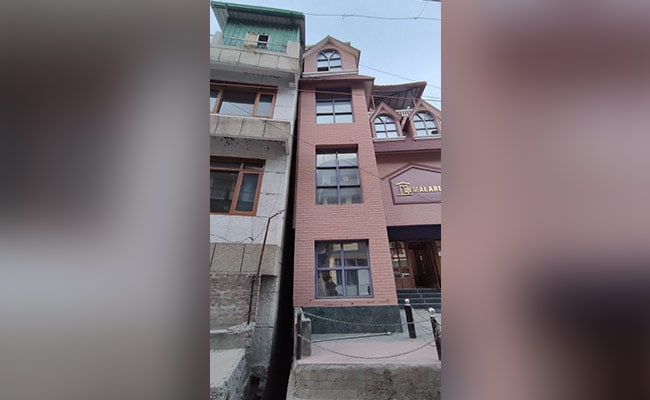A temple collapsed in the Himalayan town of Joshimath in Uttarakhand on Friday evening, heightening fears among residents who have been camping out in the cold as over 500 houses and other structures have developed cracks due to the soil shifting.
A team of experts and scientists is conducting a door-to-door survey and Chief Minister Pushkar Singh Dhami is likely to visit too.
More than 3,000 people are affected, the municipality chief has said. That’s over 10 per cent of the population in the Himalayan town. Cracks run along and across the roads and are widening constantly in the holy town, an entry point for major Hindu and Sikh pilgrimages and one of the major military bases near India’s border with China.
No one was injured in the temple collapse as it was abandoned after it had developed huge cracks. The nearby town of Auli is seeing a similar problem develop; all roads to it have been closed. Also, ongoing projects, including a hydel power plant and the Char Dham road, have been halted.
The state government has said people whose houses are affected and have to vacate will get Rs 4,000 a month as rent for the next six months from the Chief Minister’s Relief Fund.
On a main road in Joshimath, a tilted hotel building leaning onto the one next to it is emblematic of how unabated development has led to cracks, literally, across the hill town in Chamoli district.
At least 40 families have already moved out as soil subsidence gets worse by the day in a region that’s among the most susceptible to earthquakes.




 Sonia in hospital with respiratory infection, recovering
Sonia in hospital with respiratory infection, recovering 